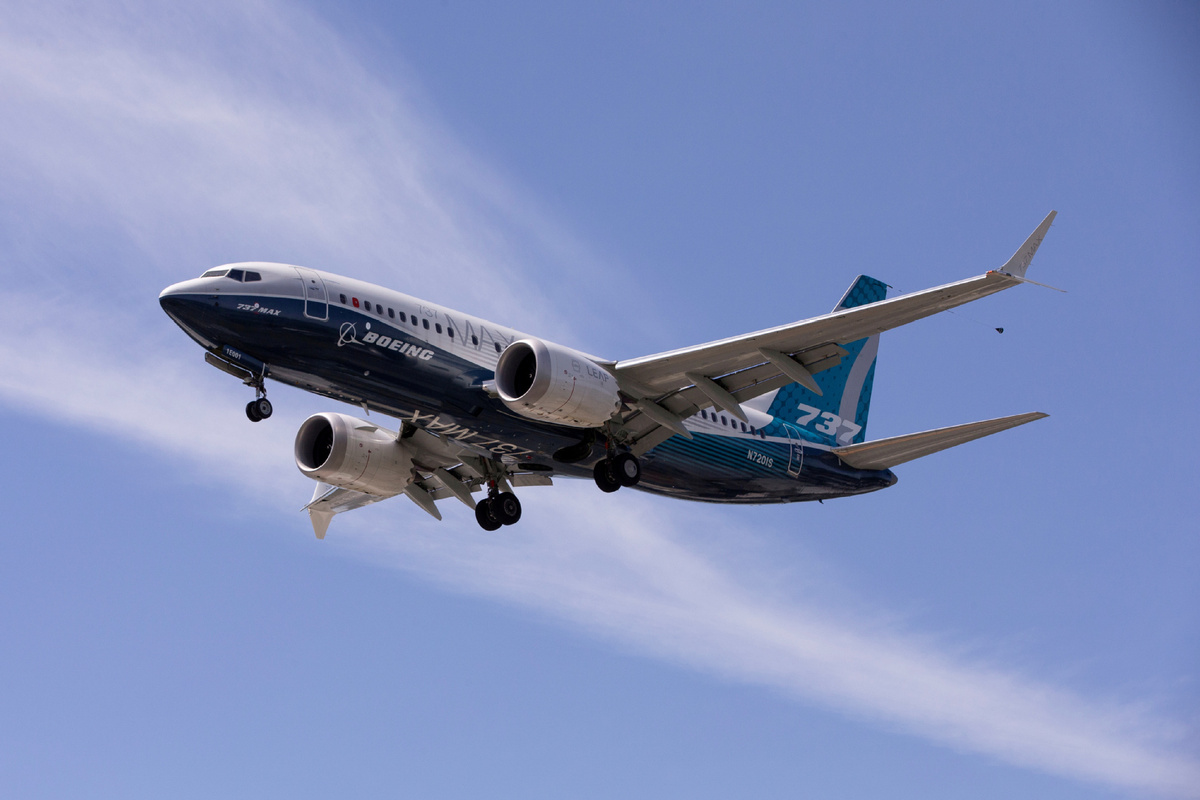Boeing set for next round of tests for 737 MAX
By SCOTT REEVES in New York | China Daily Global | Updated: 2020-07-07 11:12

Pilots from airlines worldwide will join Boeing and US government officials this week for the next round of tests for the 737 MAX's automated flight control system.
The US Federal Aviation Administration (FAA) wants to know how line pilots, or those who routinely handle commercial flights, handle the updated software in the jet's Maneuvering Characteristics Augmentation System (MCAS).
In the past, Boeing, the FAA and international regulators have relied on comments from test pilots and highly skilled company flyers to establish performance benchmarks for airline pilots in an emergency.
The pilots of the two 737 MAX flights that crashed may have been overwhelmed by multiple visual, audible and tactile alarms prior to the crashes, investigators believe.
Ground-based flight simulators will be used to test line pilots' reaction to possible emergencies, including faulty commands from MCAS.
"The agency is following a deliberate process and will take the time it needs to thoroughly review Boeing's work," the FAA said in a statement. "We will lift the grounding order only after FAA experts are satisfied that the aircraft meets certification standards."
FAA Director Steve Dickson, a former military and commercial pilot, has said he won't recertify the MAX for commercial flight until he personally flies the plane and tests the new software on a flight simulator.
The MAX, Boeing's best-selling jet, has been grounded worldwide since March 2019 following crashes in Indonesia and Ethiopia that killed a total of 346 passengers and crew.
Investigators believe the MAX's automated anti-stall device, MACS, erroneously pointed the nose of the planes down to avoid a midair stall and into a fatal plunge.
The new, heavier engines on the MAX were moved closer to the fuselage, and that changed the in-flight handling characteristics of the plane. At times, the nose of the plane pitched up and that could lead to a midair stall. Boeing added MCAS to compensate.
Last week, the FAA and Boeing completed an initial round of certification tests near Seattle. But the second round of tests may take longer than expected.
According to press reports, the FAA and some foreign regulators differ on who should participate in the testing.
In some cases, travel restrictions due to the coronavirus pandemic have made it difficult for pilots to safely enter the US and, perhaps, return home. This could slow testing of the automated flight system's updated software.
There is no deadline for final approval of the software updates.
The FAA said last week's test flights were an important step in returning the MAX to the air, and the regulatory agency again said it is "following a deliberate process and will take the time it needs to thoroughly review Boeing's work".
The FAA will review the data and establish new training requirements for pilots. If all goes well, federal regulators may "unground" the MAX by mid-September, reported The Wall Street Journal.
Preparing the grounded planes for service may take weeks, and commercial flights may not resume until the end of the year.
However, timelines have slipped in the past, and further delays are possible. Boeing had hoped to have the MAX back in the air this summer.
Grounding the MAX has cost Boeing about $18 billion as carriers canceled orders. The grounding has disrupted Boeing's supply chain and led to layoffs at Spirit AeroSystems, a builder of fuselages.
Congress has launched investigations into the crashes, and criminal investigations continue.
























